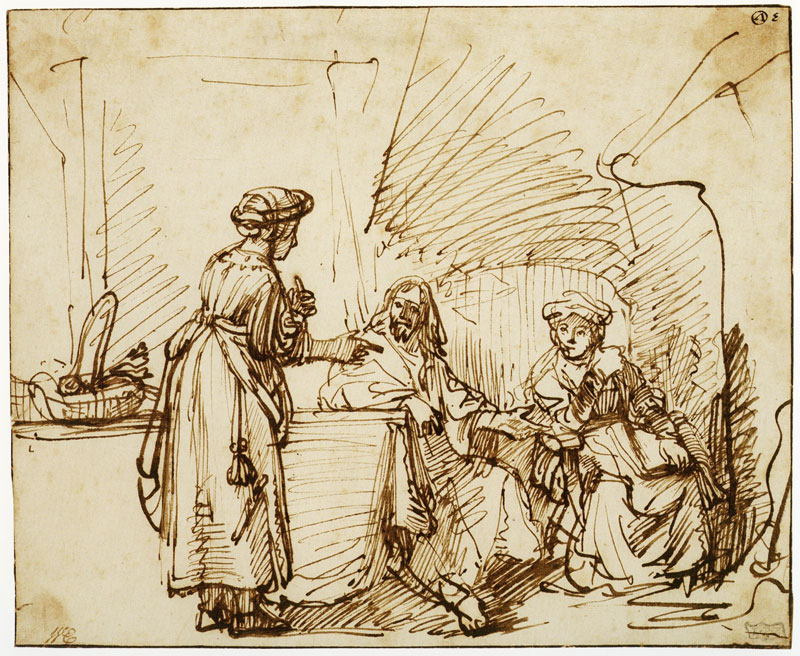The touch of the Holy Spirit, its radiative activity, leads the pupil right to the heart of real life, to an intense activity — for the salvation of one child of man means at the same time the calling and awakening of many others.
You will be on the path as soon as the Holy Spirit has touched you with its radiation-power, when you have become receptive to it and react to it. And if you do react, the result will always be that you are led away into the desert by the Holy Spirit. This means a task in one’s own being and a task in the world.
One who stands in the radiation-power of the Elohim knows what he has to do; the Holy Spirit tells him. The signature of such a pupil is correspondingly twofold. He shows an inner growth, a continuous inner unfoldment, and at the same time he explores a field of work in which he gives himself unreservedly on the path of service. In this context we would like to draw your attention to Martha and Mary (Luke 10: 38-42).
Martha, the one who served, and Mary, who sat at Jesus’ feet. Martha was a more advanced pupil than Mary. Martha knew the active as well as the contemplative life, whereas Mary had only advanced as far as the contemplative life, the preparation for her task.
Without the contemplative life, the active life has no sense and brings not a single result. Martha’s question was intended to test whether her beloved sister Mary had already passed the contemplative phase and was able to go on the great work of salvation.
However, Jesus’ answer made it clear to her that for Mary this phase had not yet begun. So at that moment Mary was following the right course by losing herself in inner contemplation at her Master’s feet. In her conditions she had chosen the better part.
Without the touch of the Holy Spirit we are nothing and we can do nothing. Without the touch of the radiation-power of the Universal Brotherhood no individual liberation is possible and no liberating work can be carried out for mankind.
What we call a “vocation” or “mandate” is the touch of the Holy Spirit. The disciples only set to work after the outpouring of the Holy Spirit. Only then did Mary and the other holy women help them in carrying out their mandate.
The pupil’s will must be ignited in God. As long as the pupil’s own will, the will of nature, burns within him, any work will be mere dialectical ambition and difficulties will always arise. Then people will jostle for the most important positions and start to quarrel about who is the highest and best, just as the disciples did in their preparatory phase.
The contemplative and the active life are never in contradiction with each other. Both of them follow the start that will guide them to the Bread House, to Bethlehem, to the newborn king of the Jews. The Pupil who arrives in Bethlehem is he or she who discovers the newborn king in his own being, the birth of the new man in the microcosm.
When the newborn king of the Jews arises in the microcosm, the old will has died and the king of nature has gone.
Source: The brotherhood of Shamballa by J. van Rijckenborgh and Catharose de Petri
